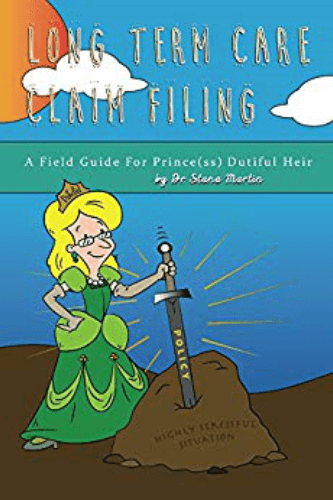We have fielded quite a few questions of late about rate increases on long term care insurance policies.
Some of the larger companies (Met Life, John Hancock, Prudential, Genworth to name but a few) have had some significant increases in the last year or so.
So this blog is about why they happen and what your legitimate options are…
WHY DO THES OCCUR?
Most people feel penalized for being older or having more medical conditions. They perceive the rate increase to be an attempt by the insurance company to “get them off the roll” – you know, raise the rate so much they squeeze seniors out of being able to afford right about the time they need to use it. I confess I am not privy to any backroom discussions – so I can’t tell you with certainty what the underlying rationale is. However, I can tell you the reason the Insurance Commissioner in each state might be willing to approve a rate increase. Remember this: rate increases are regulated on all non-worksite purchases. The Insurance Commissioner in your state must approve a rate increase – the insurance company can’t just raise it whenever they feel like it!
Here is why an insurance commissioner’s office might approve a rate increase: the insurance company can produce evidence that they will not be able to meet the claim obligation without the increase in premium. If an insurance company will go bankrupt paying claims, then the insurance commissioner will allow the increase. Why would an insurance company not be able to pay claims? Well, they built their original pricing on actuarial assumptions of lapse rates, claim rates, and return on investment rates. If any one of those variable is wrong, then they could be in a world of trouble trying to pay claims. Let us just take one example: claim rates. 20 to 30 years ago when many people bought their policies, medical science was not able to help stroke victims, dementia patients and such. Many of the diseases that cause long hauls of long term care were terminal. These days medical science can help people survive things like strokes and keep people alive longer that have dementia and other such chronic conditions. So, as you might imagine, claim rates have escalated beyond what the models predicted “back in the day”. When you combine that with policy owners not lapsing the policies like anticipated and/or a sluggish stock market where returns are less than anticipated, we create a “perfect storm” for rate increases to be approved.
WHAT TO DO:
1) You might have the right of contingent nonforfeiture if the policy has increased enough. This is a complicated topic all by itself and you should read more about this in other blogs to get a full understanding of how it works and whether or not it is right for you.
2) You might have a written offer to reduce benefits to a “landing spot” to keep the premiums lower. You have to analyze these with some care. It is possible this is a sensible move and won’t cause you any significant problems. But if the reduction is large, you may want to think about other choices. These written “landing spot” offers have a finite time window on them. If you opt to take one of these, you must sign/return the offer within the time frame given or the offer becomes void/null.
3) Finally, the policy owner always has the right to reduce benefits on the policy. At any time an din any year. You may not have those same “landing spot” offers, but there are others. To get these, you have to call the insurance company and ask them to run you options. The most common things you can reduce in your policy to lower the premiums are: the amount of benefit per day/week/month, the total pool of money (or time window), or the inflation growth protection.
Reducing these benefit options in some combination will usually get the premium down where you can afford to keep this valuable protection.
Stana Martin, PhD, founded Mrs LTC to provide a top-quality resource for clients and customers who need help with long term care claims or insurance comparisons.
Questions?
Contact - Mrs. LTC
Long Term Care Claims & Insurance
Question about a Claim?
Shopping for coverage?








